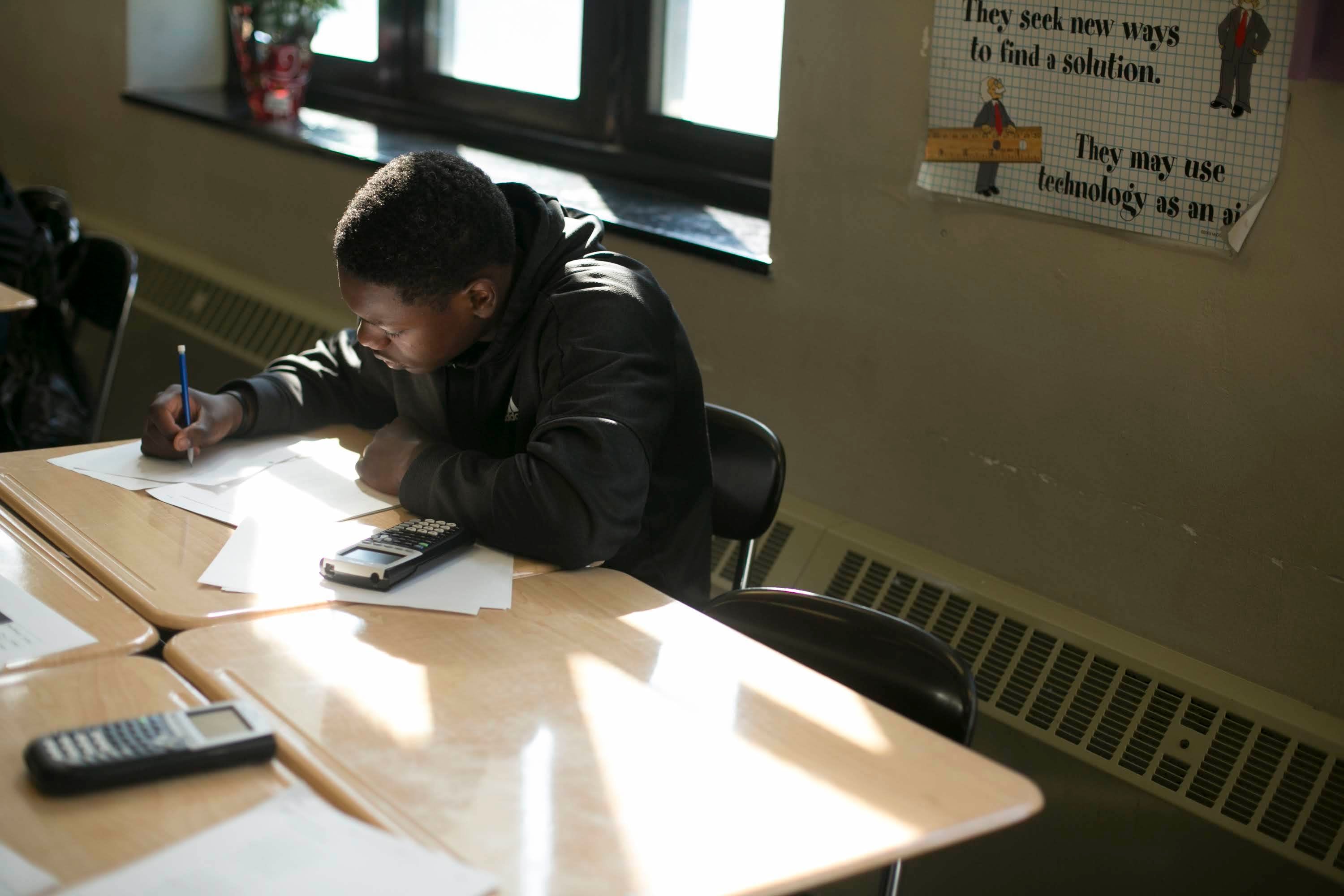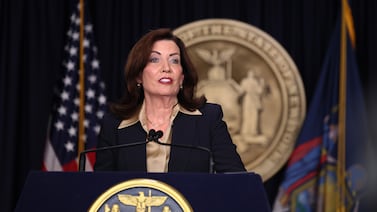Sign up for Chalkbeat Detroit’s free newsletter to keep up with the city’s public school system and Michigan education policy
Gov. Gretchen Whitmer’s education budget proposal for the 2025-26 school year would require elementary schools to notify parents if they are using a high-quality curriculum to teach students.
It’s one of the initiatives in her budget proposal, introduced Wednesday to the Michigan Legislature, that requires schools to be more transparent with parents about how their children’s schools are performing.
Her proposal also includes an increase in state per-pupil funding for schools, as well as increases in funding for early childhood programs, at-risk students, and career and technical education programs, and to increase funding for districts that follow best practices.
The parent transparency efforts are a key part of the governor’s hopes. The recommendations come on the heels of the state’s disappointing scores on the National Assessment of Educational Progress, or NAEP, a national exam given to a representative sample of students in each state. The scores released last week show Michigan students aren’t making much progress academically.
“By providing this information to parents, buildings using less-than-effective curriculum will be held more accountable,” the proposal says of the parent notices.
Schools serving students in grades kindergarten through five would have to mail parents a report if their curriculum isn’t “evidence-based” and include a “plan for how and when the district will implement more effective instructional practices.” It was unclear Wednesday afternoon who would determine what is considered evidence-based and how they would make that determination.
Several other parent transparency efforts include:
- Parents would also have to be notified if their children’s schools fall in the bottom 5% academically among schools statewide on the state’s accountability system, or if subgroups of students — such as students from low-income homes — perform near the bottom of academic rankings. “Districts will be required to outline a plan to remedy this situation as well as a mechanism for parental feedback,” the proposal reads.
- Districts would have to send a report to parents showing how they are spending money provided by the state for at-risk students. The report must show how the districts will “equitably target those dollars toward highest need schools,” and what evidence-based interventions are being used.
- School boards would need to have a discussion and provide time for public input on how it will enhance parental engagement, on school academic outcomes, on improvement on benchmark and state exams.
- Districts would be required to add a link on the main page of their website that links back to the state parent dashboard, which is aimed at giving parents information to gauge how their children’s schools are performing.
Here are some of the governor’s other education spending proposals:
- The minimum per-pupil grant for Michigan schools would increase by $392 dollars, to $10,000 per student. Online cyber schools that operate virtually 100% of the time would receive 20% less than that amount, or $8,000 per student.
- The state would increase by 4.1%, or $94 million, the amount of money targeted at students who are considered at risk, students with disabilities, and English language learners. It also includes increased payments for students enrolled in career and technical education programs, students enrolled in rural and isolated districts, and for intermediate school districts.
- The state would continue to invest in providing its PreK for All initiative. That includes increasing the per child allocation by $392, to $10,577. The proposal also includes allocating $25 million in start-up grants for new providers and classrooms.
- The budget would also provide increased funding for literacy supports, mental health, teen health centers, and before- and after-school programs.
- A proposed $232 million for districts that implement best practices and high impact tutoring. It’s unclear what those best practices would be, but the proposal said it would be a “pre-defined list” of best practices.
Correction: Feb. 10, 2025: This story was corrected to note that full-time cyber schools would receive 20% less than the $10,000 per pupil all other K-12 schools would receive.
Lori Higgins is the bureau chief for Chalkbeat Detroit. You can reach her at lhiggins@chalkbeat.org.







